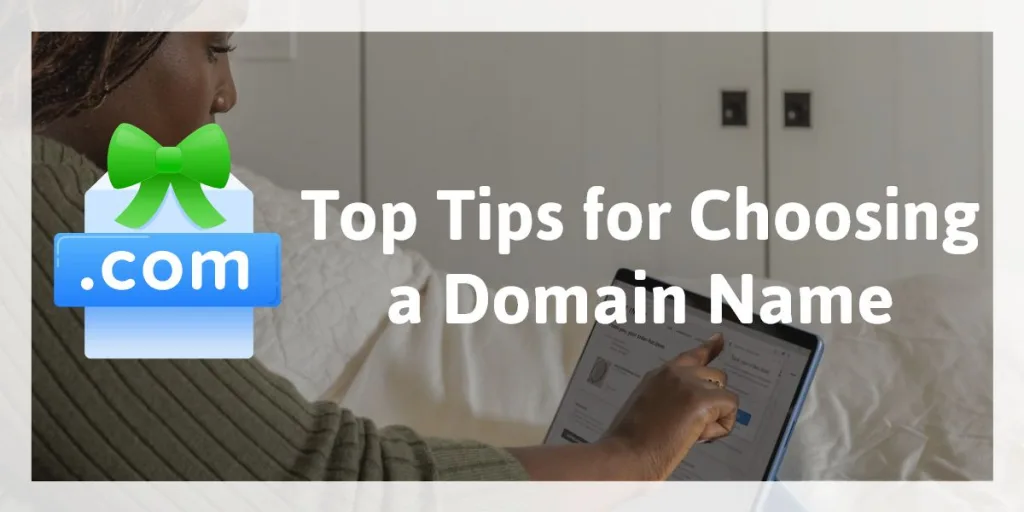Domain Name Tips: An Introduction
As well as top tips for choosing a domain name (website name), this guide also provides some explanation and facts behind domain names. If you’re only interested in the tips, feel free to skip straight to that section.
What is a domain name?
A domain name is basically your website address, for example www.google.com, www.yahoo.com . You may also see them in the form of https://facebook.com, or https://www.facebook.com. On a basic level, http://www.facebook.com, http://facebook.com and www.facebook.com are all the same domain name.
Domain names can have various extensions (the bit which comes after the second dot). The most well-known ones include .com, .net and .org . Most extensions are related to a specific country, for example .us (USA), .it (Italy) and .ca (Canada).
Even domain name extensions which sound like something else are usually country extensions, for example .tv is not technically related to television but is actually the country extension for the islands of Tuvalu.
In some cases there are buying restrictions; for example you need a registered Irish address to buy a .ie domain name, and you can’t buy a .ac.uk domain name without being a registered UK education establishment or charity with a physical presence.
Did you know?
The first .com domain name was symbolics.com, which was registered in 1985.
Where do I get a domain name?
Domain names can be purchased from hundreds, if not thousands, of different companies all over the world. These are usually called domain name registrars or web hosting companies. And you can find them by doing a Google search.
Some things you may want to consider are:
- Price: You will need to renew your name (usually every year or every two years unless you pay for additional years in advance). So pick somewhere cheap.
- Age: You don’t want the company to go out of business so it’s often better to pick an older company.
- Size: Whilst bigger companies may not provide as good customer support. They are far less likely to go bankrupt or disappear overnight.
- Personal recommendation: Web hosting and domain names are a very competitive industry. And many ‘independent’ reviews, comparisons and award sites are faked or sponsored by a specific company. A personal recommendation from someone you know who has actually used the company can go a long way.
My Personal Recommendation
Check this post to find Best Domain Registrars
How to protect your brand name
Say the domain name you want to buy is wordpresswidgets.com. How are you going to stop a competitor setting up rival websites at wordpresswidgets.net, bestwordpresswidgets.com, wordpress-widgets.com and so on? You can’t, unless you buy all the names your customers/visitors might search for yourself (or you trademark your name. But this is expensive).
Obviously, you could carry on buying domain names forever. But a good rule of thumb is to buy the .com extension, the name with hyphens, and the country extension (.us, .co.uk, .it etc.). As I live in the UK, I would buy wordpresswidgets.com, wordpress-widgets.com, wordpress-widgets.co.uk and wordpresswidgets.co.uk. I would pick one as my main site to develop, and direct the other names to it. Visitors typing in any of my domain names would automatically see my website.
Top tips for picking a domain name
- Make it short. Longer names are harder to remember and encourage typos.
- Avoid hyphens if possible. People won’t remember where they appear in the name.
- Make it easy to spell. Don’t pick complex words with lots of syllables.
- Avoid shortened words. For example ‘text speak’ and words with vowels removed. Again, it’s difficult to remember which letters have been removed and where.
- Pick a common extension. Although www.yourperfectname.mn may be available, people are much more likely to go to the .com by accident. So you may have to compromise on your ideal name.
- Use real, dictionary words where possible. People are happier with words and names they understand, and again it reduces the chance of misspells.
- Pick an extension that relates to your market. If you want to rank well in www.google.ca as your primary target audience is Canadians, buy www.yourperfectname.ca – it can give you a good advantage.
- Research competitors and keywords. If you’re creating an affiliate site or want to rank highly for particular keywords. Then choose your name based around those. For example, the name www.slowcookerrecipes.org will help your search engine position for the search ‘slow cooker’ more than a website called www.boriscooks.org.
- Avoid trademarked names. It might be a cool idea to buy appleimacs.com, but expect Apple to take it from you.
What happen now?
Examples of good and bad domain names
Good:
Facebook.com: It uses two common dictionary words, is easy to spell, is only two syllables long and is simple to remember.
Bad:
Make-a-swisssh.com: This is used on a TV advert in the UK, and it’s a really bad example of a domain name. I’ve seen people type in make-a-swishhh.com and all kinds of other variations. The company also owns make-a-swish.com but has decided against using that as the main URL. It’s a long name and it uses two hyphens plus an atypical spelling.
After you’ve bought your domain name, it’s time to build your website. If your chosen domain name registrar doesn’t offer web hosting, then you will need to find another company that does.
If you are keen to rank well in the search engine of a particular country (e.g. www.google.co.uk rather than www.google.com). Then you need to pick a host which has its servers based in that country. You should be able to find this information on the company’s website. or you could call them if you aren’t sure.



